Gold & Oil Rise As The Dollar Falls
By Colin Twiggs
October 16, 2007 3:00 a.m. ET (5:00 p.m. AET)
These extracts from my trading diary are for educational purposes and should not be interpreted as investment advice. Full terms and conditions can be found at Terms of Use.
Economy
The housing slump will remain a significant drag on economic growth into 2008, according to Fed Chairman Ben Bernanke. Major banks are considering a Treasury proposal to create a joint fund of up to $100 billion. The fund will provide liquidity for the asset-backed commercial paper market and attempt to head off further contraction, above the $300 billion so far.
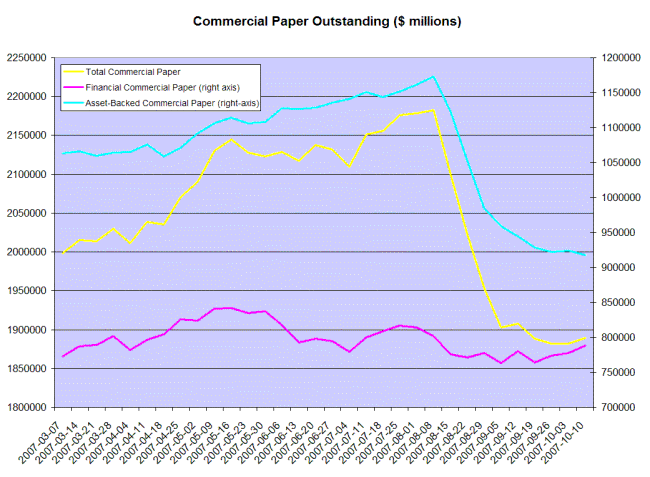
Any sign that the slow-down is spilling over into other areas of the economy may force the Fed to cut interest rates further. This would cause a further decline in the dollar — and boost gold and oil prices.
Gold
Gold broke out above $750, confirming the long-term target of $900 [730+(730-550)]. Expect gold to appreciate as the US dollar weakens. Reversal below $720/ounce is unlikely — and would warn of another correction.
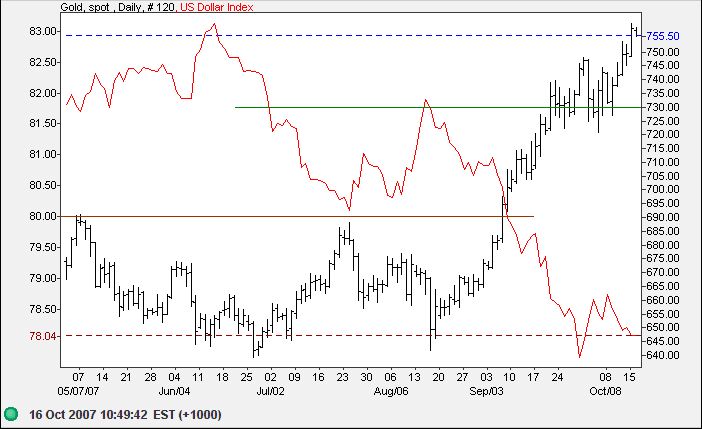
Source: Netdania
Crude Oil
December Light Crude broke through resistance at $82.50 per barrel, signaling a further primary advance in synch with gold. A retracement that respects the new support level (at $82.50) would confirm the rough target of $90.00 [80+(80-70)]. Expect crude to appreciate as the dollar weakens.
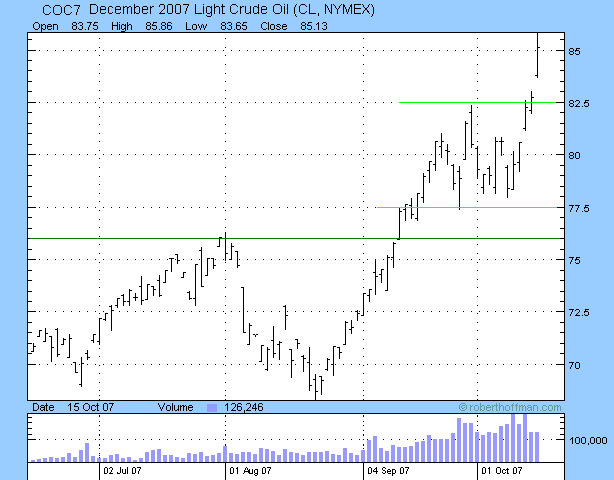
Currencies
The euro is consolidating against the dollar at the
upper trend channel. A fall below $1.40 would signal a test of
the lower channel border, while a new high would indicate an
accelerating up-trend.
The long-term target is $1.57 [1.37+(1.37-1.17)].
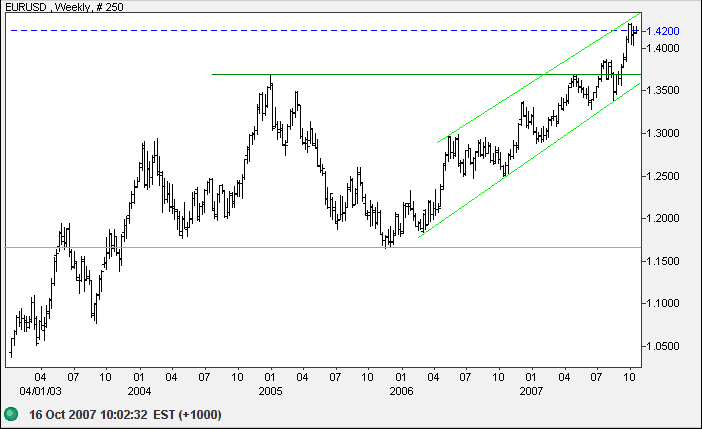
Source: Netdania
The dollar is consolidating against the yen after breaking out above a symmetrical triangle. A rise above 118 would signal a test of resistance at 122/124, while reversal below 117 would warn of a test of support at the lower border of the large broadening formation.
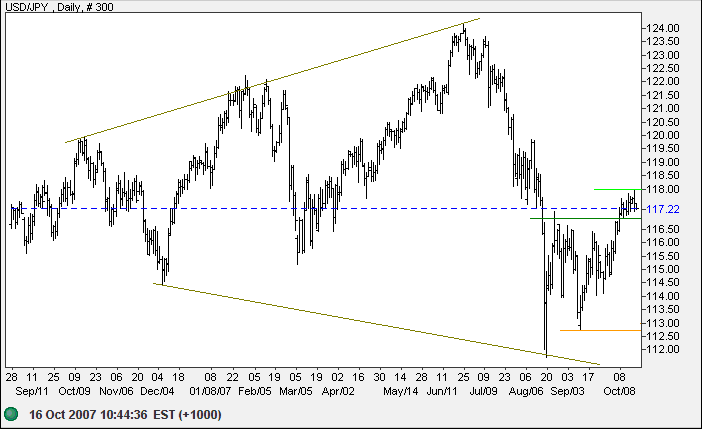
Source: Netdania
The Australian dollar is consolidating below $0.9100 after breaking out above the previous high of $0.8875. Upward breakout would further confirm the long-term target of parity with the greenback. Reversal below $0.8800, while not expected, would warn of a secondary correction.
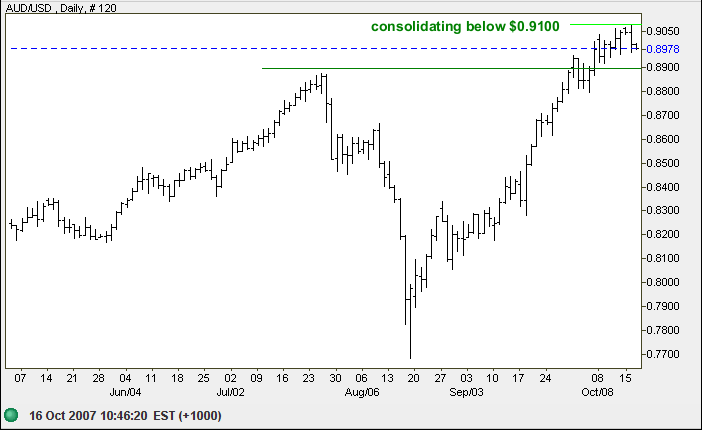
Source: Netdania
Treasury Yields
Ten-year treasury yields are trending upwards (medium-term)
after respecting support at 4.50%. Expect the dollar to weaken
if this continues.
The yield differential (10-year minus 13-week treasury yields)
is falling, increasing pressure on bank margins. The credit
squeeze continues.
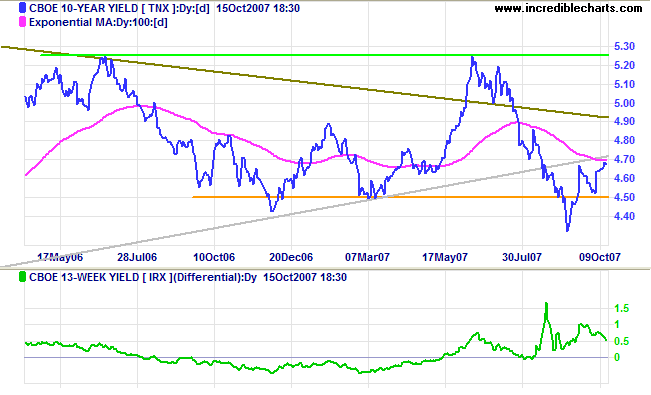
The yield on 3-month Treasury bills is rising. Narrowing of the spread between asset-backed commercial paper and 3 month T-bills would indicate that the market is returning to normal and losing its aversion to risk.
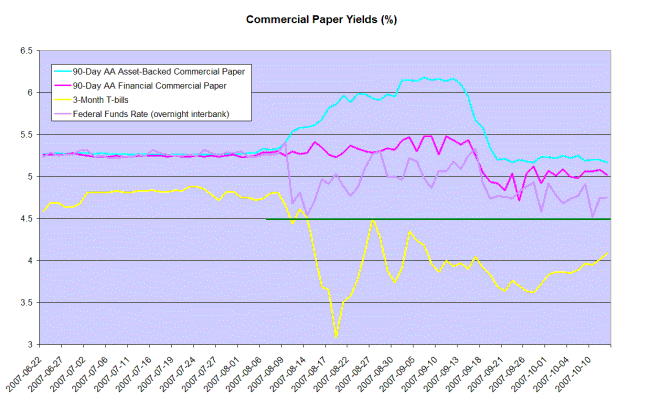
Stock Markets
The S&P 500 reversed below 1555 after making a new high. The failed breakout is a bearish sign, and a fall below 1540 would indicate a test of 1500. Failure of support at 1500 would warn of a test of primary support at 1400. A close above 1565 remains equally likely, however, and would signal continuation of the primary advance.
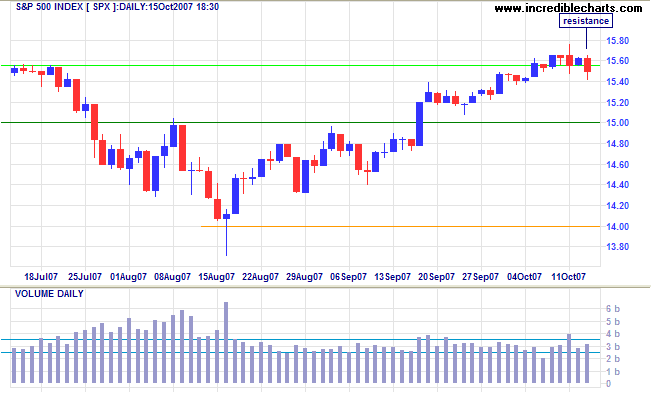
The long-term chart shows why the 1500 level is such an important watershed. A large bearish divergence on Twiggs Money Flow warns of distribution.
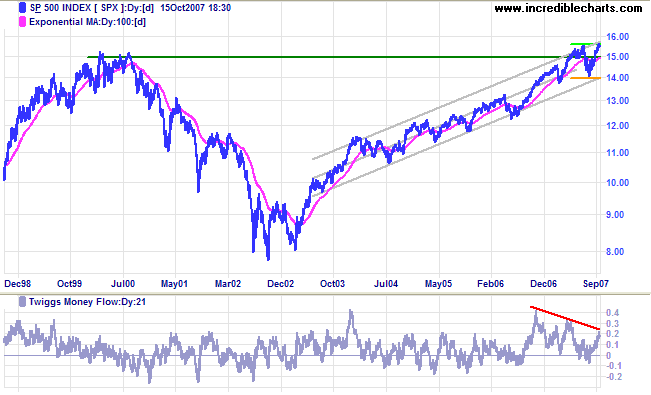
The Nikkei is edging upwards, consolidating in a narrow band between 17200 and 17500, but remains in a primary down-trend.
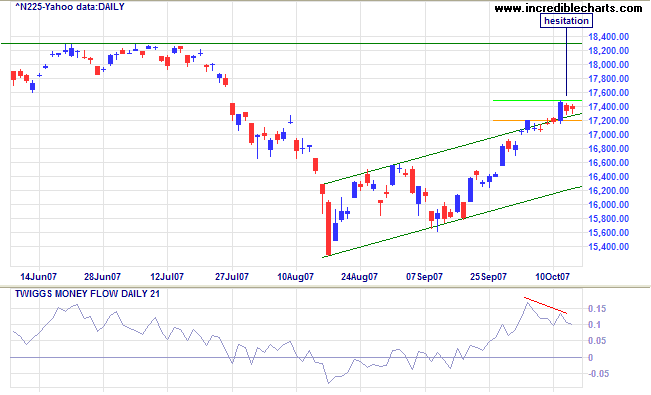
The FTSE 100 is testing resistance at 6750, below the all-time high of 6930. Twiggs Money Flow breakout above 0.25 would be a bull signal.
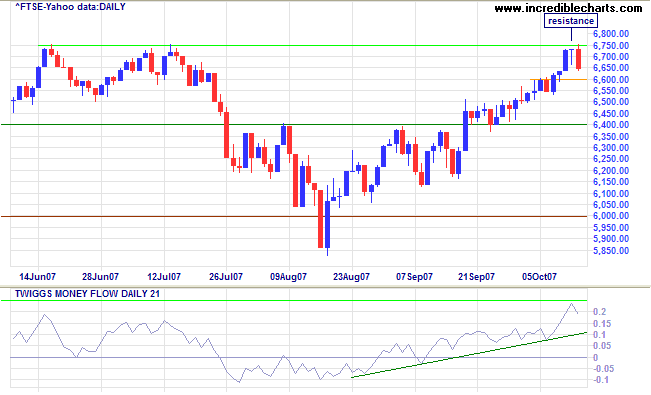
The Australian All Ordinaries is testing the lower border of the trend channel. Respect would signal an up-swing to a target of 7000 [6400+(6400-5800)].
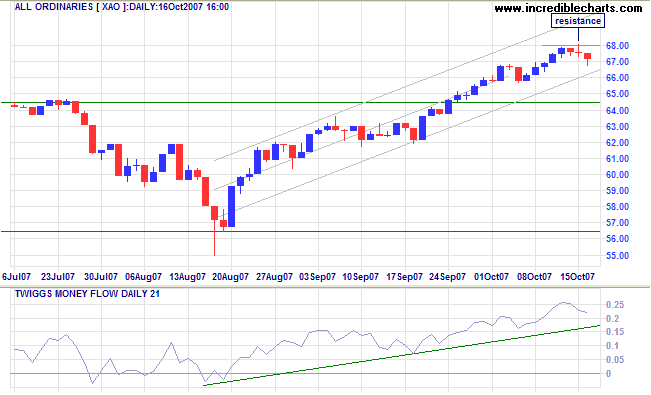
The Hang Seng is climbing steeply in anticipation of legislation that would allow mainland investment in Hong Kong stocks.
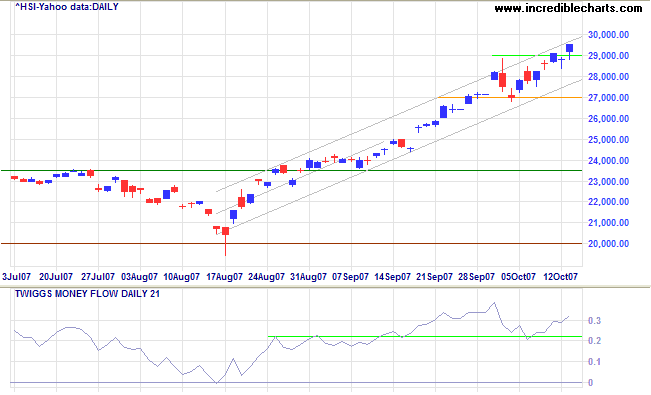
Wright Model
Probability of recession in the next four quarters eased to 22 per cent according to the Wright Model. The model fairly accurately predicts recessions caused by contraction of the money supply, but I suspect that it may not be as reliable in identifying mischief caused by artificially low interest rates.
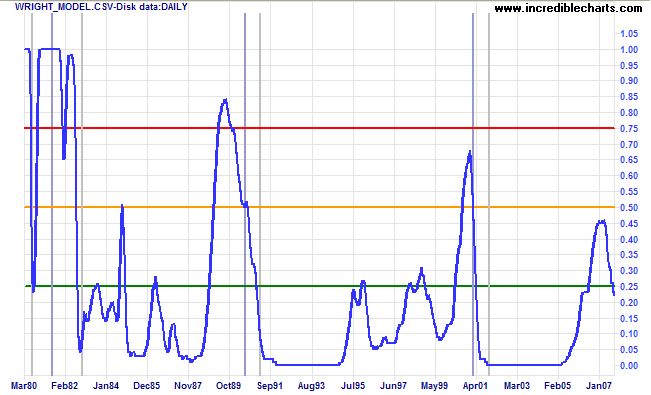
Fiat money is the cause of inflation, and the amount which
people lose in purchasing power is exactly the amount which was
taken from them and transferred to their governments by this
process.
~ G. Edward Griffin,
The Creature from Jekyll Island
To understand my approach, please read Technical Analysis & Predictions in About The Trading Diary.

Author: Colin Twiggs is a former investment banker with almost 40 years of experience in financial markets. He co-founded Incredible Charts and writes the popular Trading Diary and Patient Investor newsletters.
Using a top-down approach, Colin identifies key macro trends in the global economy before evaluating selected opportunities using a combination of fundamental and technical analysis.
Focusing on interest rates and financial market liquidity as primary drivers of the economic cycle, he warned of the 2008/2009 and 2020 bear markets well ahead of actual events.
He founded PVT Capital (AFSL No. 546090) in May 2023, which offers investment strategy and advice to wholesale clients.
